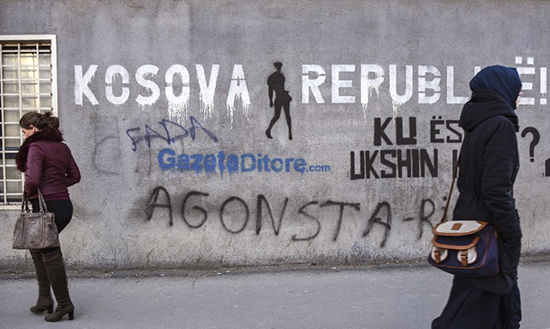New York, April 13, 2017–Police in Kosovo should thoroughly and swiftly investigate death threats against Arbana Xharra and Musa Mustafa and ensure the safety of the two investigative journalists, the Committee to Protect Journalists said today.
“A free press depends on journalists’ ability to write without fearing for their lives,” CPJ Europe and Central Asia Program Coordinator Nina Ognianova said. “We call on authorities in Kosovo to conduct careful and prompt investigations into the threats against Arbana Xharra and Musa Mustafa and to bring those responsible to justice to deter others from this ugly and unacceptable behavior.”
Mustafa, an ethnic Albanian and the founder of the news website Infojeta.net, received death threats on April 11 via text message, according to media reports. The threats used derogatory terms and threatened him, his family, and the Albanian people with death “if he continues to write against Serbs.” His website quoted him as saying that the threats were related to his recent reports on Serbian “parallel police structures,” Russian influence, and organized crime in northern Kosovo, where he lives.
Separately, Xharra, a prominent investigative journalist and editor of the Pristina daily newspaper Zeri, found cross-like symbols drawn with a paint that looked like blood near her apartment and the garage where she parks her car, regional and international media reported. On April 10, the journalist, who has recently written about corruption and radical Islamists, posted a photograph of the cross by her home to Twitter, writing, “None of your threats can stop me from telling the truth. Someone [drew] a Christian cross next to the door where I live.”
Both Mustafa and Xharra filed complaints with local police, according to media reports.
The Association of Journalists of Kosovo expressed concern regarding both cases and called for “swift and efficient investigations.”
Journalists in Kosovo have faced threats for their reporting before. In August 2016, the group Rugovasit took responsibility for detonating an explosive device in the back yard of Mentor Shala, the head of Kosovo’s public broadcaster, and threatened further attacks if he did not resign. The group said it opposed the broadcaster’s coverage of a border demarcation deal with Montenegro.
